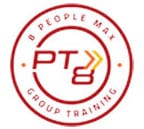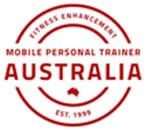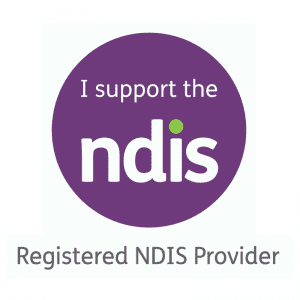As a new mum or mum-to-be there are a lot of questions about what is safe and what is not when it comes to fitness. There are a lot of opinions out there, and people are often happy to offer their unsolicited advice! The following are two common questions that women face when they want to work on their fitness during and after pregnancy.
- Are you compromising the health of your unborn child by focusing too much on diet and exercise?
First of all, what is the motivation for exercise and diet? If the motivation is to stay as fit and healthy as possible throughout pregnancy to assist with labour and post-natal recovery – then you’re on the right track. In fact diet and exercise are not only OK during pregnancy, they are actually vitally important to help reduce the risks to both mum and baby.
Some of the benefits of exercise during pregnancy include
- Improved mood and energy levels
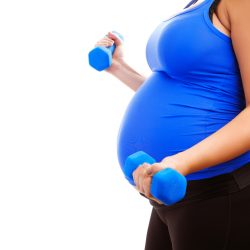
- Reduced risk of excessive weight gain
- Reduced risk of developing gestational diabetes or preeclampsia
- Improved sleep
- Reduce back pain
- Reduce risk of constipation
- Returning to pre-baby weight more quickly
- Prepare body for labour and delivery
- Improved recovery from labour and delivery
- Reduce risk of post-natal depression
Of course pregnancy is not the right time to try to LOSE weight, or to start a gruelling new exercise routine that you’ve never done before. However, the American College of Obstetrics and Gynaecology say that as long as you are healthy and your pregnancy is normal, continuing your current exercise routine right throughout pregnancy is absolutely fine. There is no evidence to show that exercise harms your unborn baby in any way. Bearing in mind there are certain exercises or activities that should be avoided due to a high risk of falling or damaging abdominal and/or pelvic floor muscles. For more information, see our article on exercise during pregnancy – myth vs truth.
Diet is extremely important because there are many things that we are encouraged to avoid during pregnancy because of the risks of passing on bacterial infections to the baby, including things like raw fish, soft cheeses and deli meats/salads. It’s important to avoid excessive weight gain during pregnancy because there is the risk of developing gestational diabetes. It’s also important to ensure we have a good intake of all the important micronutrients our baby needs for proper growth and development.
In summary – moderate exercise and a sensible diet during pregnancy are not only fine they are encouraged.
- Is it realistic to go straight back to a bikini body after having a baby?
The short answer is = no, it’s not really realistic to think that you’ll look the same in a bikini straight after giving birth as you did before pregnancy. If you want to look good in a bikini, that’s great! But don’t forget no two people are the same, and just because someone is promoting how quickly they got back into their bikini, it doesn’t mean you should feel like you have to achieve the same thing.
Unfortunately some fitness companies are out in the media promoting and flaunting post-baby bikini bodies, which can exacerbate the social pressure on women to look a certain way.
The key to post-natal recovery is to take it at your own pace. It’s NOT realistic to try to look like anyone else. Some key points to remember
- Your body didn’t change overnight. It took 9 months to get to the end of the pregnancy, give yourself plenty of time to get back to your pre-pregnancy shape.
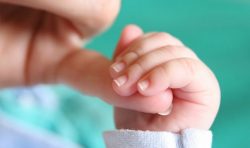
- Life is certainly different with a new baby, and you might have to think differently about fitting in your exercise, baby has its own routine, you’ll be sleep deprived and likely exhausted a lot of the time.
- Remember that dieting for weight loss is NOT recommended post-natal, ESPECIALLY if you are breastfeeding – you need to eat a balanced, varied diet to provide all the nutrients that you and your bub need. You actually have a HIGHER calorie requirement during breastfeeding than you do during pregnancy!
- Cut yourself some slack! Having a baby is hard work, you’ll be tired, still waiting for your hormones to return to normal, and adjusting to your new demanding schedule being on-call 24/7. Make sure you set yourself realistic goals, and don’t feel disappointed if it is harder than you thought, being a new mum is one of the hardest jobs in the world!

